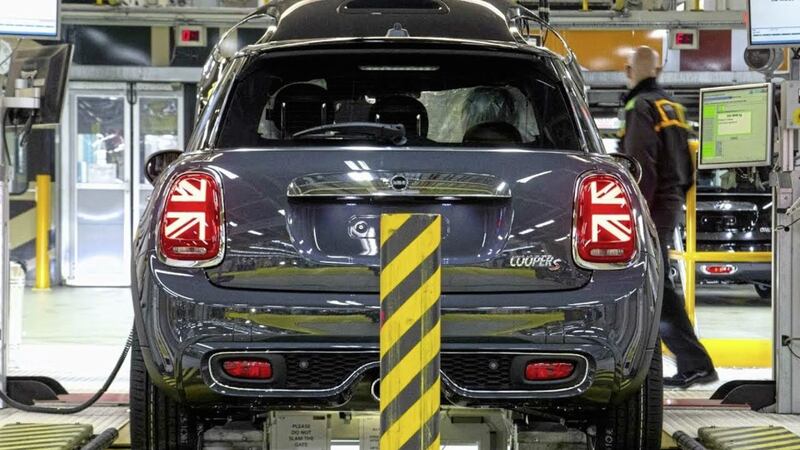HELL hath no fury like an airport scorned - especially when it is taking a swipe at an airline which has just axed its trans-Atlantic route.
Belfast International Airport, the aviation department annexed to car parks at Aldergrove, got stuck in to Norwegian Air this week after the budget operator announced it was going to stop flying from Belfast to the United States because of a lack of demand.
"Regrettably the limited and inferior product offered by Norwegian was creating awareness within the market, but moronically channelling much greater levels of Northern Ireland passengers onto Dublin flights…" it railed in a brusque statement which was distinguished by a remarkable lack of self-awareness.
Regular users of Belfast International Airport will, for example, be wearily familiar with its own "limited and inferior product".
As well as donating money to Ian Paisley's DUP constituency association, its well-publicised travails this year include flooding car parks and appalling queues through a security operation which has become synonymous with "moronically channelling" passengers. A new security firm is due to take over in November; it has a challenge ahead of it…
I was perhaps more attentive to the developments at Belfast International Airport on Monday as I was flying that day, albeit from the Belfast airport that is actually in Belfast.
The City Airport - or 'Mr Tayto Airport' as my son calls it, on account of the wall-to-wall cheese and onion crisp promotion - has recently updated its security arrangements, which puts it at a major advantage over the not-in-Belfast airport.
Other development work means there is now the same sort of identikit 'relax and shop' opportunities that can be found in similar airports all over Europe, but overall it is a more pleasant place in which to be trapped while you await your flight's departure.
However, car parking at the City - do any real people actually say 'George Best Belfast City Airport'? - is even more ludicrously expensive than it is at Aldergrove.
My pre-paid 'discounted online price' for two days at the City was £44.99.
That makes it around 50 per cent more expensive than comparable parking at Aldergrove, where there are at least a few operators to offer some price competition.
The City, meanwhile, has enjoyed a monopoly since a much lamented venture operated from Ikea's multi-storey car park was shut down by planners in 2015.
I was travelling to England to attend an event organised by the Society of Motor Manufacturers and Traders.
The SMMT and its members are highly exercised by the uncertainty created by Brexit in advance of the UK leaving the European Union next March.
The supply chains involved in car manufacturing are byzantine and stretch deep into Europe from the huge factories in England where the production lines of Nissan, Mini, Honda and others are situated.
'Just in time' manufacturing is the industry standard, meaning that parts for your new Mini arrive in Oxford from the widget factory in Germany at exactly the right moment to be screwed to the car as it moves along the production line.
The alloy wheels for Honda Civics come from a factory in Belgium, with sets of the right size reaching Swindon at just the right time to be bolted on to a specific car.
These just in time systems are mind-bogglingly complex.
They also depend on reliable timings to get parts from A to B including, in the case of EU manufacturing, the absence of unpredictable customs hold-ups at international borders.
So well developed are the car-makers' just in time processes that they don't need to stockpile parts from their European suppliers in warehouses beside their factories.
Brexit, of course, pitches all that confident precision into fuzzy uncertainty. Rather than finessing their just in time systems, manufacturers are having to think about 'just in case'.
At the centre of this Brexit maelstrom is the DUP.
I won't be the only person from Northern Ireland to find themselves pumped for information about the previously-obscure DUP when in the company of inquisitive people from Britain.
By the time you've given a brief overview of the Spadocratic Unionist Party's involvement in the RHI shambles, the Ian Paisley Jnr favours-for-Sri Lanka scandal, the row about bus stop names and any number of other episodes - Red Sky and that £425,000 Leave donation to name but two - incredulity has faded from their faces to be replaced by something close to terror.
"Why does anyone vote for them?" is a common follow-up question. Why indeed.









